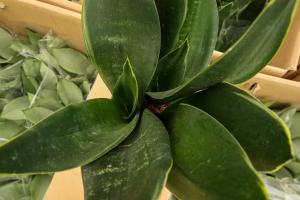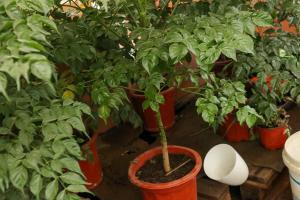What is Eating My Tomato Plant Roots
As a tomato plant enthusiast, you know that one of the biggest problems that you can face is the damage to the roots. This can lead to a failure in growth, wilting, and ultimately the death of your plant. If your tomato plants are looking unhealthy or have stunted growth, it is imperative that you keep an eye out for any signs of root damage. In this article, we are going to explore some of the common culprits that could be eating your tomato plant roots.
Fungi
One of the most common offenders when it comes to eating tomato plant roots is fungi. This is especially true in areas where the soil is damp or waterlogged. Fungi can be difficult to detect, but if you notice that your plants are wilting or if you see any yellowing or browning of leaves, it is a good sign that there is a fungal infection. Fungi usually attack weak roots, so it's important that you ensure that your tomato plants are healthy and are not suffering from any pre-existing issues.
Nematodes
Another common culprit that could be eating your tomato plant roots are nematodes. These are tiny, microscopic worms that can infest the soil in your garden. Nematodes can be particularly dangerous as they can devour entire populations of tomato plant roots. Signs of nematode infestation include stunted growth, wilting, and yellowing of the leaves. If you suspect that your plants may be suffering from nematodes, it's important that you take action as soon as possible as they can be difficult to eradicate.
Root Knot Nematodes
Root knot nematodes are a special type of nematode that are particularly dangerous for your tomato plants. As the name suggests, these nematodes cause gnarled or knotted roots, which can cause severe damage to your plants. Signs of root knot nematode infestation include stunted growth, wilting, yellowing of the leaves, and small, misshapen tomatoes. If you notice any of these signs, it's important that you take action immediately to prevent the spread of the nematodes.
Rodents
Rodents, such as voles and rats, can also be a nuisance when it comes to eating your tomato plant roots. They are attracted to the roots and can cause significant damage. Signs of rodent infestation include holes in the ground near your tomato plants or if you see rodents scurrying around your garden. It's important that you take measures to eradicate the rodents as soon as possible to prevent further damage to your tomato plants.
Conclusion
In conclusion, there are a variety of factors that could be eating your tomato plant roots. From fungi to nematodes to rodent infestations, it's important that you keep an eye on your tomato plants and take appropriate measures to prevent damage. By ensuring that your plants are healthy and by taking preventative action, you can enjoy a bountiful harvest of juicy, delicious tomatoes year after year.

 how many times do yo...
how many times do yo... how many planted tre...
how many planted tre... how many pine trees ...
how many pine trees ... how many pecan trees...
how many pecan trees... how many plants comp...
how many plants comp... how many plants can ...
how many plants can ... how many plants and ...
how many plants and ... how many pepper plan...
how many pepper plan...
































